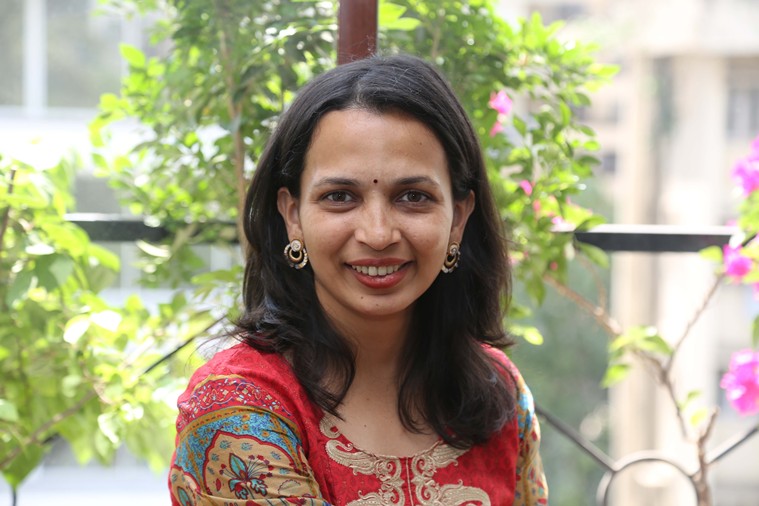Food For Thought: Nutritionist Rujuta Diwekar rubbishes the fear that sugar is the big baddie of the food world
So you think sugar’s bad for you? And ghee? Well, Rujuta Diwekar has some advice for you: eat local and enjoy your bhajiyas.
 The title of her first book — Don’t Lose Your Mind, Lose Your Weight — is indicative of the nutritionist Rujuta Diwekar’s approach.
The title of her first book — Don’t Lose Your Mind, Lose Your Weight — is indicative of the nutritionist Rujuta Diwekar’s approach.
In April 2015, as the health-conscious ordered their usual dry rotis and naans (“no butter, please”) and nutritionists continued warning their clients off egg yolks and other sources of saturated fats, the United States Food and Drug Administration (US FDA), issued a new set of dietary guidelines. The most startling of these was the statement that there being no link between dietary cholesterol and heart disease, the restriction on consumption of dietary cholesterol had been lifted. In other words, for the first time since 1980, the USFDA — the most influential public health agency in the world — was saying that fat was no longer nutrient non grata and that those of us who had abjured ghee, butter, coconuts and whole eggs in the interests of good heart health, need no longer do so.
In her office in the Mumbai suburb of Khar, Rujuta Diwekar read the news with a sense of vindication. For years, the nutritionist has been a vocal advocate for the inclusion of ghee, butter, peanuts and other natural sources of fat in a healthy diet. “It’s not as if I felt I didn’t have any scientific backing,” she says, when we meet for lunch at her cheery office. As soon as I arrive, I’m offered a choice of traditional drinks — kokum sherbet, nimbu pani and chhaas. Since I’ve just been reading about the many benefits of kokum mentioned in her new book Indian Superfoods (Juggernaut), I go for the first option. Lunch is traditional and in deference to the heat, light. The plate before me contains a jowar bhakri (slathered with desi cow ghee), bhindi fry, a few dabs of dahi, a bowl of rajma, some rice and a spoonful of Maharashtrian-style salad called koshimbir — a good balance of carbohydrates, proteins, fibre and fats.
As we proceed with the meal, Diwekar explains, “There have been many studies over the years that have shown how saturated fats are beneficial, even necessary, for our bodies. But to the average person on the streets, ‘fat’ was a villain and I appreciate that after all these years, the USFDA is making the effort to rectify the very serious mistake that it had made in making health professionals and the public think this way. Still, it has a long way to catch up with all that we are finding out in the field of nutritional science.”
Diwekar rubbishes the fear that sugar is the big baddie of the food world, going so far as to list it as a “superfood” in her new book. She talks about the various medicinal and therapeutic uses that crystalline sugar — along with sugarcane, jaggery and sugarcane juice — has been put to since ancient times. Among these uses, she lists complexion improvement, greater fertility and improved digestion. She says, “The problem is not sugar. The problem is processed and packaged food that is high on sugar, particularly since this form of sugar is mostly derived from high fructose corn syrup, which is linked to obesity. The sugar that we traditionally consume in India, which comes from sugarcane, is, in fact, very beneficial. There should be no problem if it is consumed in the traditional way — as part of seasonal laddoos, or the way Gujaratis use it in their food, or even this koshimbir that we’re having.” The key, she says, is to eat the way our grandparents did. “The World Health Organisation says we can have six to 12 teaspoons of sugar a day; if you eat like your grandmother, you will end up having three to four teaspoons a day only. That was an intelligent way to consume sugar. Nowadays, the situation is such that we don’t take any sugar in our chai, but have two biscuits in our hand,” she says.
One doesn’t need Google to know that Diwekar is in a minority here. If the war against bad lifestyle is waged with backing from government policy and internet search results that frown upon foods like ghee, sugar, rice and bananas, Diwekar is part of an increasingly vocal resistance against such a black-and-white views. Her understanding of food rests on the notion that eating local is the no-brainer solution to good health. This is why she places such emphasis on food wisdom as it has evolved in India over the centuries.
 Nutritionist Rujuta Diwekar at Her Residence Khar West (Express Photo by Dilip Kagda)
Nutritionist Rujuta Diwekar at Her Residence Khar West (Express Photo by Dilip Kagda)
This reverence for traditional Indian food wisdom, she says, is coded into her DNA, thanks to her family’s farming background. Growing up, the Mumbaikar’s vacations were mostly spent on her grandfather’s farm in Vasai, where she would help out with farm work. Even now, whenever she gets the chance, she takes off for the family farm.“I think, subconsciously, that’s when I imbibed the idea that what comes from the earth is what we should eat. There was a great emphasis on respecting and eating what is produced locally,” she says.
She had always been an active girl, with an interest in sports and so it wasn’t such a stretch for her to contemplate a career in health. But it was when she started her post-graduate course in Sports Science and Nutrition from SNDT in Mumbai in 1998, that her theories regarding nutrition started to take firmer shape. She would wonder why the prescribed syllabus would demonise foods like mango, chickoo, custard apple and bananas, all of which are a part of Indian cuisines. She recalls, “It was hard to find local foods that had representation in our syllabus, and I realised that everything that we are learning, is based on a Western model.”
Diwekar’s position may seem revisionist, but her ideas are hardly radical. She acknowledges this, saying, “It’s not too hard to convince Indians about the wisdom of eating traditionally, with emphasis on local and seasonal produce. After all, it was only a generation ago that we started adopting a diet that consisted of processed foods.” This is, perhaps, the key to her success, the reason why her clientele boasts of names like Kareena Kapoor, Alia Bhatt, Anil Ambani and why her books are such bestsellers.
The title of her first book — Don’t Lose Your Mind, Lose Your Weight — is indicative of the nutritionist’s approach. “The biggest disservice that the nutrition science community did was to tell people about proteins, carbohydrates, fats and fibres. As a result, we now have a situation where people can’t look at food as food. A friend of mine recently had a guest over who, when asked what he would like to eat, asked for some protein!” Diwekar rejects this liberal use of jargon, along with labels like “gluten-free”, “dairy-free”, “low-fat”, “sugar-free” and advocates an anxiety-free relationship with food. She doesn’t even deny her clients the occasional deep fried bhajiyas or pakoras. “I hope no one in this country ever has to go through a monsoon when they cannot have bhajiyas with their chai,” she says, “Why should we lose out on the small joys of life? Aside from nourishment, food is also supposed to give us joy, and one of my main jobs is to reconnect my clients with this feeling of joy. If any client of mine is unable to eat happily and healthily without consulting me, then I’ll feel that I have failed.”
- 01
- 02
- 03
- 04
- 05


























